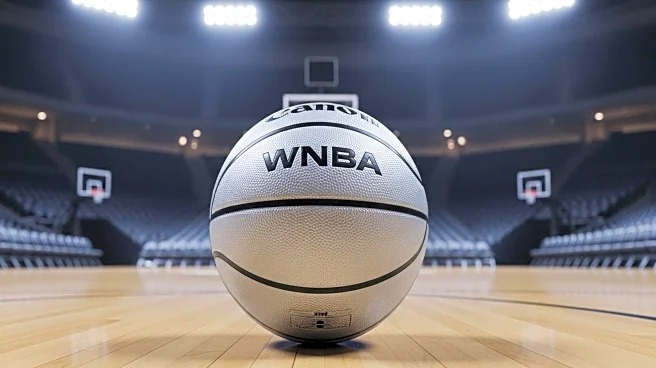What's Happening?
The WNBA is facing a critical juncture as its current collective bargaining agreement (CBA) is set to expire on October 31. The league and the players' union have yet to reach a new agreement, raising the possibility of a lockout. Players have been vocal about their dissatisfaction with the negotiation process, with Minnesota Lynx star Naphessa Collier criticizing league commissioner Cathy Engelbert for poor leadership. Despite these tensions, NBA Commissioner Adam Silver has expressed confidence that a new deal will be reached. Silver acknowledged that while financial issues are a significant part of the negotiations, repairing relationships between the league and its players is also crucial. The players are advocating for a larger share of the league's revenue, which currently stands at 9.3%, compared to the nearly 50% share NBA players receive. The WNBA is experiencing growth, with a new $2.2 billion media rights deal and plans for expansion teams, but player salaries have not kept pace.
Why It's Important?
The outcome of these negotiations holds significant implications for the WNBA's future. A new CBA could address long-standing issues of player compensation and revenue sharing, potentially leading to improved financial conditions for players. The league's growth, highlighted by new media deals and expansion plans, underscores the need for a fair agreement that reflects its increasing popularity. Failure to reach an agreement could result in a lockout, disrupting the league's operations and affecting its reputation. The players' push for better terms also highlights broader issues of equity and fairness in professional sports, particularly in women's leagues. The resolution of these negotiations could set a precedent for other sports leagues facing similar challenges.
What's Next?
If a new CBA is not agreed upon by the deadline, the WNBA and the players' union may consider extending the current agreement to allow more time for negotiations. This would prevent a lockout and enable league operations to continue. However, if no extension is reached, a lockout could occur, halting league activities and potentially damaging relationships further. Stakeholders, including players, team owners, and fans, will be closely watching the developments. The league's ability to address both financial and relational issues will be crucial in reaching a satisfactory agreement. The outcome will likely influence future negotiations in other sports leagues, particularly those involving women's sports.








